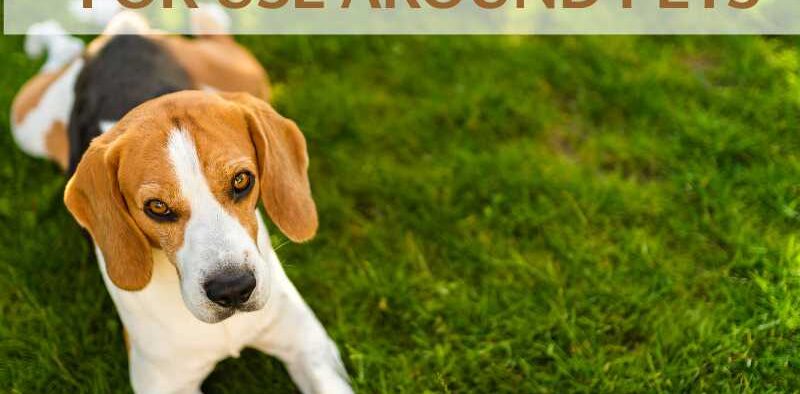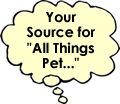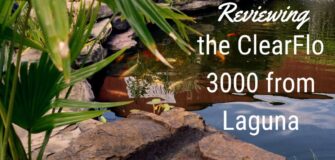Natural Weed Killers for Use Around Pets
Share

When it comes to maintaining a weed-free garden while ensuring the safety of pets and bees, choosing the right weed killer is crucial. Traditional chemical herbicides can pose significant risks to these vulnerable groups, making it important to explore safer alternatives. Today, we delve into a variety of pet-safe and bee-safe weed killers, and offer guidance on natural and non-toxic options that effectively manage weeds without compromising the well-being of your furry friends and our crucial pollinators.
Understanding the Risks of Conventional Herbicides
Conventional herbicides, such as those containing glyphosate (found in products like Roundup), are highly effective but pose serious risks. Glyphosate has been linked to various health issues in pets (and people), that include vomiting, diarrhea, and more severe toxic reactions in cases of high exposure. For bees, glyphosate can disrupt their gut microbiota, impairing their ability to fight off diseases and negatively affecting colony health.
Glysophate products can seep into your water supply, impacting you as well as your pets. Remember that bible verse, as it is above, so it is below? Well, anything we use on our earth is moving down into our ground water. It’s one more reason that we need to avoid toxic chemicals that never fully disappear.

Natural and Non-Toxic Weed Killers
Vinegar-Based Solutions
- How It Works: Acetic acid, the active ingredient in vinegar, can desiccate and kill weeds by drawing out moisture.
- Application: Use a solution of horticultural vinegar (20% acetic acid) for best results. Household vinegar (5% acetic acid) can also work but may require more frequent applications.
- Safety: Vinegar is generally safe for pets and bees, though direct application should be avoided to prevent skin and eye irritation.
Corn Gluten Meal
- How It Works: Corn gluten meal acts as a pre-emergent herbicide, preventing weed seeds from germinating.
- Application: Apply it to your garden beds early in the spring before weeds have a chance to sprout.
- Safety: It is non-toxic to pets and safe for bees as it targets the seed germination process without affecting mature plants.
Manual Weed Removal
- How It Works: Physically removing weeds by hand or with tools can be time-consuming but is highly effective and completely safe.
- Application: Regularly inspect your garden and remove weeds by their roots to prevent regrowth.
- Safety: This method poses no risk to pets or bees and is environmentally friendly.
Boiling Water
- How It Works: Boiling water scalds and kills weeds on contact.
- Application: Carefully pour boiling water directly onto the weeds.
- Safety: This method is safe for pets and bees as it uses no chemicals, though care should be taken to avoid damaging desired plants.
Salt
- How It Works: Salt dehydrates and disrupts the cellular balance in weeds.
- Application: Dissolve salt in water and apply it to the weeds or sprinkle salt directly at the base of the weeds.
- Safety: While effective, salt can alter soil composition and harm surrounding plants if used excessively. It should be used sparingly and away from areas where pets frequently roam.
Mulching
- How It Works: Mulch blocks sunlight and prevents weed seeds from germinating.
- Application: Spread a thick layer of mulch (such as wood chips, straw, or grass clippings) over your garden beds.
- Safety: Mulch is completely safe for pets and bees and also improves soil health.
Commercially Available Pet- and Bee-Safe Weed Killers
Several companies now offer commercial weed killers that are specifically formulated to be safe for pets and bees:
EcoSMART Organic Weed and Grass Killer
- Ingredients: Made from plant oils and other natural ingredients.
- Safety: EcoSMART products are designed to be non-toxic to pets and are safe around bees.
- Where to Buy: Amazon carries this product.
Doctor Kirchner Natural Weed Killer
- Ingredients: Utilizes ocean water, vinegar, and soap.
- Safety: Non-toxic and safe for pets and beneficial insects like bees.
- Where to Buy: Amazon carries Doctor Kirchner
Green Gobbler Vinegar Weed Killer
- Ingredients: Contains concentrated vinegar.
- Safety: Certified for organic use, this product is pet-safe and does not harm bees.
- Where to Buy: Amazon carries Green Gobbler products.
Best Practices for Application
Timing and Weather Considerations
- Apply weed killers during calm, dry weather to prevent drift that could affect nearby plants, pets, or bee habitats.
- Early morning or late evening applications can help minimize exposure to bees, which are less active during these times.
Targeted Application
- Directly target weeds to minimize exposure to desired plants and reduce the risk to pets and bees.
- Use tools like weed wands or shields to precisely apply the solution and avoid over-spraying.
Post-Application Safety
- Keep pets indoors or away from treated areas until the solution has dried or settled.
- Ensure water sources, like bird baths or pet water bowls, are covered or removed during application.
Maintaining a weed-free garden without harming pets and bees is entirely achievable with a thoughtful approach and the use of natural, non-toxic weed killers. By prioritizing methods that rely on physical removal, natural substances like vinegar and corn gluten meal, and safe commercial products, gardeners can create a thriving, healthy environment for all inhabitants. Remember, the key to success is regular maintenance and careful application to ensure the safety of your pets and the crucial pollinators that contribute to the health of your garden ecosystem.










